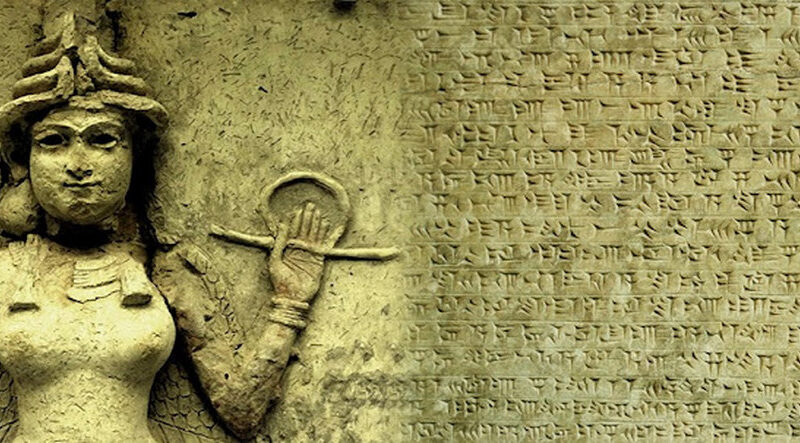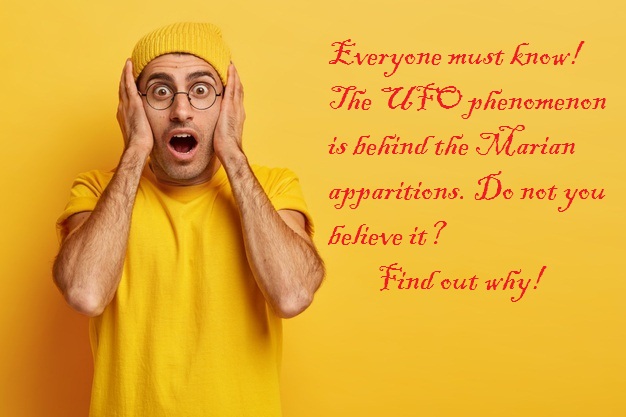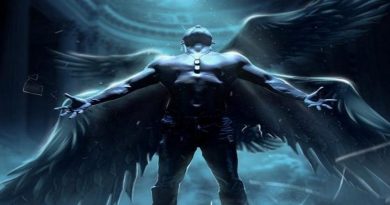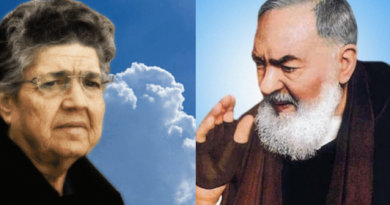Sumerians gods? Don’t make them angry
Sumerian Gods? no aliens
We humans have the same drives as the Annunaki, desire, anger, greed, selfishness and so on and so forth, am I not right? After all, if we are their work … what should we expect, how can we say today? Like father, not like son?
The Annunaki or Elohim if you prefer were not so loving and conscientious with the human race, see Yahweh … they were not even among them this is the point.
Their anger was nothing short of frightening, let’s face it, all the races that have visited us over the millennia were warlike and very dangerous, see also those who reigned in ancient India, where aboard their Vimana they wiped out hundreds of thousands of men during their battles, but let’s go back to Mesopotamia.
A particularly angry goddess was Ishtar who, if provoked, made you pay dearly … despite having to do with Gigalmesh, yes, really him, you know who he was? Not just any one, a demigod, the lord of Uruk, the fact is that the goddess takes it badly in the circumstance for an unrequited love, accompanied even by offense and derision, he will be able to make the heavenly abode of his father tremble with his cries and unleash hell on earth.
Gilgamesh and Ishtar and the outrageous refusal
The Gilgamesh Saga in its “classic” version, which tradition attributes to the scribe Sinleqiunnini, is divided into 12 tables – the sensational discovery was announced in 1872 during the Biblical Archaeological Assembly in London: in one table (the twelfth) was A Chaldean tale about the Flood has been identified – and it is the fourth, in order of time (compared to the Paleo-Babylonian, Mid-Babylonian and Hittite one), to contain the heroic events of the mythical king of the 1st dynasty of Uruk and his inseparable companion Enkidu, among the killing of monstrous beings and the (vain) search for immortality.
It is not easy to establish whether Gilgamesh, deified “for two thirds” and for a third human, was a historical figure or not; what is certain is that the literature, from the most ancient Sumerian to the Neo-Assyrian, outlines it with attributes and epithets that underline its lineage, defining it as dingir, divine.
The Sumerian Royal List (whose final version dates back to 1950 BCE) calls him the “divine lord of Kullab”, the oldest part of the city, seat of his kingdom; in the oldest document that mentions him, a list from Fara, the hero is counted among the Sumerian gods, and is called the “son of Ninsun” and the divine king Lugalbanda in an inscription dating back to the reign of Utukhengal. However, the goddess of love Ishtar whose cult was central to Uruk will not fail to point out to him, in the most ancient testimonies dating back to the end of the third millennium, his condition as a mortal.
Despite these contradictions, its divine nature does not seem to fade with time, indeed it is confirmed throughout the tradition that continues to remember its divine descent. In Assyro-Babylonian literature he is identified with Nergal as an infernal judge and his name also appears in a group of divinatory texts with the attribute of “oracle”.
Seal of King Urukh, in G. Rawlinson,
The five great monarchies of the ancient eastern world, Boston 1882,
p. 118, via the Internet Archive
This is the story as it is told in table VI of the so-called “classic” version which bears the signature of the scribe Sinleqiuninni, preserved for millennia and found in the library of Ashurbanipal.
Sinleqiunnini has received and reworked some very ancient and well-known nuclei of history, from the adventure to the Cedar Forest in search of immortality with the hero of the Flood, from the association with the inseparable Enkidu to the turbulent relations with Ishtar (Inanna Sumerian), however, making completely original innovations including resentments of an amorous nature.
Gilgamesh was a handsome and ambitious young king, the best known and most celebrated ruler in all of Mesopotamia. Returning from the Cedar Forest where he defeated the terrible Khubaba, Gilgamesh triumphs in the city acclaimed by the crowd, holding the head of the slain monster high.
The fifth plate ends thus and the sixth begins by bringing back the intimate and private scene of the king who undresses and cleanses himself, focusing now on one and now on the other detail, the belt, the bare back on which he loosens the long hair.
The hero of desire
The “pure” Ishtar, daughter of An, polyiad goddess of Uruk, guarantor and guardian of love, war and royalty then leans out from the walls of her temple, her sharp and ardent gaze rests on him as he places his shining arms, she throws her hair back, washes and dresses herself in royal vestments, and instantly falls in love with it.
The goddess does not waste time, she does not use mediations or expedients:
Gilgamesh, be my lover,
give me your manhood,
be my husband and I will be your bride.
The value of this loving offering is surprising. Ishtar presides over love, so he knows what it is, unlike mortals for whom he remains, together with death, the greatest of mysteries, incomprehensible, unmanageable, painful. He is not ashamed or secret of his desire, on the contrary he manifests it immediately and without heartache, offering himself in a sincere and direct relationship, equal. There would be no need, yet the beautiful goddess tries to convince him by promising him all honor and abundance both in war, in the exercise of power, and in their private rooms.
Gilgamesh’s response betrays all the limits of his nature, whether human or semi-divine by descent. His words are outrageous and contemptuous, perhaps dictated by the arrogance of having just completed a great feat:
What could I give you after I own you?
[…]
You are like an oven that does not melt the ice enumerating a number of other unflattering comparisons – a door that does not hold back rain and winds, a shoe that bites the foot, a ram that destroys, and so on.
This refusal has a precise reason, and the king exposes it in no uncertain terms: he blames Ishtar for having had too many lovers – the “love of youth” Dumuzi, a lion, a colorful bird, a horse, and again a shepherd, a guardian and even the gardener Ishullanu, who paid homage to her by giving her baskets full of juicy dates and who, having finally rejected her, ended up being turned into a mole, beaten and left to live in the midst of difficulties.
You will love me, but then you will reserve the same treatment for me.
The furious anger of the goddess
In short, with such disastrous precedents, Gilgamesh does not trust him, but this does not mean that he is allowed to cross the limits of such a brazen affront with impunity. Furious, Ishtar goes up to heaven (“in his temple he cried […] he insulted me!”, Reports an incomplete Late Hittite tablet) crying a burning humiliation in the presence of his mother Antu and his father An, who laconically, perhaps to appease her he asks her if she wasn’t the one who provoked him after all.
But Ishtar does not hear reasons, the injury and the offense burn, he wants revenge. She asks her father to send against the king of Uruk the terrible celestial Bull capable of causing a famine on earth lasting seven long years – of this too the mild father warns her, but to no avail: when a goddess is wounded in the pride pays no attention to the consequences and threatens a series of even more terrible and destructive actions:
My father, give me the heavenly Bull,
I want to kill Gilgamesh in his house.
If you don’t give me the celestial Bull,
I will tear up the gates of the Underworld,
[…]
I will raise the dead so that they eat the living; then the dead will be more numerous than the living!
Or again, in the version of the Sumerian poems: “If you do not send the celestial Bull, I will utter a cry” that will envelop heaven and earth, to the point that Anu “is afraid of her.” So the father agrees, and the celestial Bull is unleashed on the city, on its inhabitants, on its king.
Ishtar herself holds the reins: the monster lands trampling the fields and reeds and causing a chasm that swallows one hundred boys, and then another two hundred, Uruk’s “best youth”. Enkidu also falls into it, but manages to get out and face the Bull by taking him, outside of metaphor, by the horns, then by the tail, until Gilgamesh intervenes and “like a heroic butcher” dips his sword between the horns and the tendons of the nape of his neck. , abandoning him and extracting his heart, which he will then offer to the Sun (Shamash).
Gilgamesh celebrates, Ishtar complains
We can imagine at this point the resentment of the goddess, that went up on the walls of Uruk […] it folded in on itself and exploded into curses.
Enkidu, the most faithful, outrage in outrage (the beloved was not enough, now the friend too), then dares to address her these words after having thrown them against the bull’s shoulder:
If I could reach you, I would do the same to you too!
Then Ishtar sings a funeral lament for the heavenly Bull, then gathers all the courtesans and prostitutes to him, as Gilgamesh calls the artisans and gunsmiths of the city close to him, so that they may admire the bull’s horns.
The defeated goddess?
The king, after this umpteenth and heroic victorious enterprise, is even more sure of himself: he wants to hold a big party in his palace, to celebrate his greatness. The episode, which ends with Enkidu’s dream and his ominous omens, seems to mark a point for the great king and a bitter defeat for Ishtar. He, who despised her as a lover, in the vanity of omnipotence turns to the maids of his palace, asking:
Who is the most splendid of young men?
Who is the mightiest of the males?
followed by the obvious confirmation of the women, in chorus:
You are the most splendid of young men,
You are the mightiest of males!
This epilogue – the refusal that follows the goddess’ offer of love – represents a novelty of the classic version and has not failed to confuse scholars who have tried to risk interpretations. The Assyriologist Benno Landsberger (In den Tagen des Tammuz [In the time of Tammuz], 1950), for example, intended to explain Gilgamesh’s behavior with his “indifference” to the female sex, if not downright repulsion (whoever would be felt honored to receive such attention … from the goddess of love herself, moreover), preferring the company of men and, in particular, the inseparable companion Enkidu; on the contrary, the hypothesis on the homosexuality of the king of Uruk was not lacking (to instill “suspicion” a famous verse in table 1, 238-262: “I loved him as a wife, I hugged him tightly”), but there is nothing in the whole epic that suggests a love relationship between the two, not even the fact that women or lovers of Gilgamesh are never mentioned. The love that binds them has also been interpreted as that between two adolescents in a process of acquiring maturity, which brings them bitterly to the awareness of death and the impossibility of its defeat.
According to others, still, the offer of the goddess would not have been as “innocent” as it seems: if you read carefully the list of gifts that Ishtar offers to the hero, in fact, the goddess would not promise anything else, albeit in a veiled way (the allusion to the Umu demons), to make Gilgamesh the king of the Underworld and, having understood its value, he cautiously declines it. It is no coincidence, in fact, that the whole epic revolves around the search for immortality, in the vain and unfulfilled enterprise of obtaining it.
A Sumerian version.
The classic epic handed down by the scribe Sinleqiunnini is chronologically preceded by some Sumerian poems composed at the court of the III dynasty of Ur which, between continuity and innovations, constitute the corpus of the saga whose oldest versions date back to the end of the third millennium. These tables, sometimes very incomplete, present in a nutshell some central themes of the story where death and the attempt to overcome it are the basis of the hero’s deeds. In one of these compositions, of which only four fragments remain, it is told of the stormy relations between the polyiad goddess of Uruk and King Gilgamesh, an episode that will be the subject of the sixth table of the classic version.
It seems to understand that at the base of the disagreements between the two there is not a refusal or a love question, but a conflict of competences: the sovereign would like to legislate not only on the palace but also on the temples, extending his power also on the priestly class. Inanna’s reaction is firm and decisive (lines 2-8): to judge in the Eanna [temple of An in the early Babylonian period, of An and Ishtar in the classical period], I do not grant you to give orders in my holy Gipar [temple cell], I do not allow you
o Gilgamesh, you are a human being, you must remain so!
Gilgamesh tries to appease her with offerings, but she has an impetuous character and decides all the same to carry out his intentions. Inanna is furious, she wants to punish the king’s arrogance and asks her father An for an exemplary punishment: that the celestial Bull be hurled on the kingdom of Uruk to destroy all that Gilgamesh possesses. An is worried, but his daughter is adamant; he reassures him, however, that he has provided a sufficient supply of food for humans and animals. The father of the gods then agrees, entrusting the reins of the terrible and gigantic beast to his daughter who guides it by hurling it on the sown fields and the waters of the rivers, diverting its course.
Gilgamesh and Enkidu face the celestial Bull “who fills the earth with his bellow” and defeat him and also in this version the latter outrages the goddess by throwing the shoulder of the slain monster at her, while the sovereign tries to tame her by giving her the bull’s horns as an ointment holder. The tablet is incomplete and lacks the ending, but in the last legible lines is reported Gilgamesh’s fine towards Inanna and all the gods: «Towards your father and you, holy lady, great is my respect; the hero is afraid of your irresistible power ». Order is re-established, each, among the gods and among the mortals, takes his place again.
Texts and interpretations by G. Pettinato, The Gilgamesh saga, Rusconi, Milan 1992 (1st ed.).





